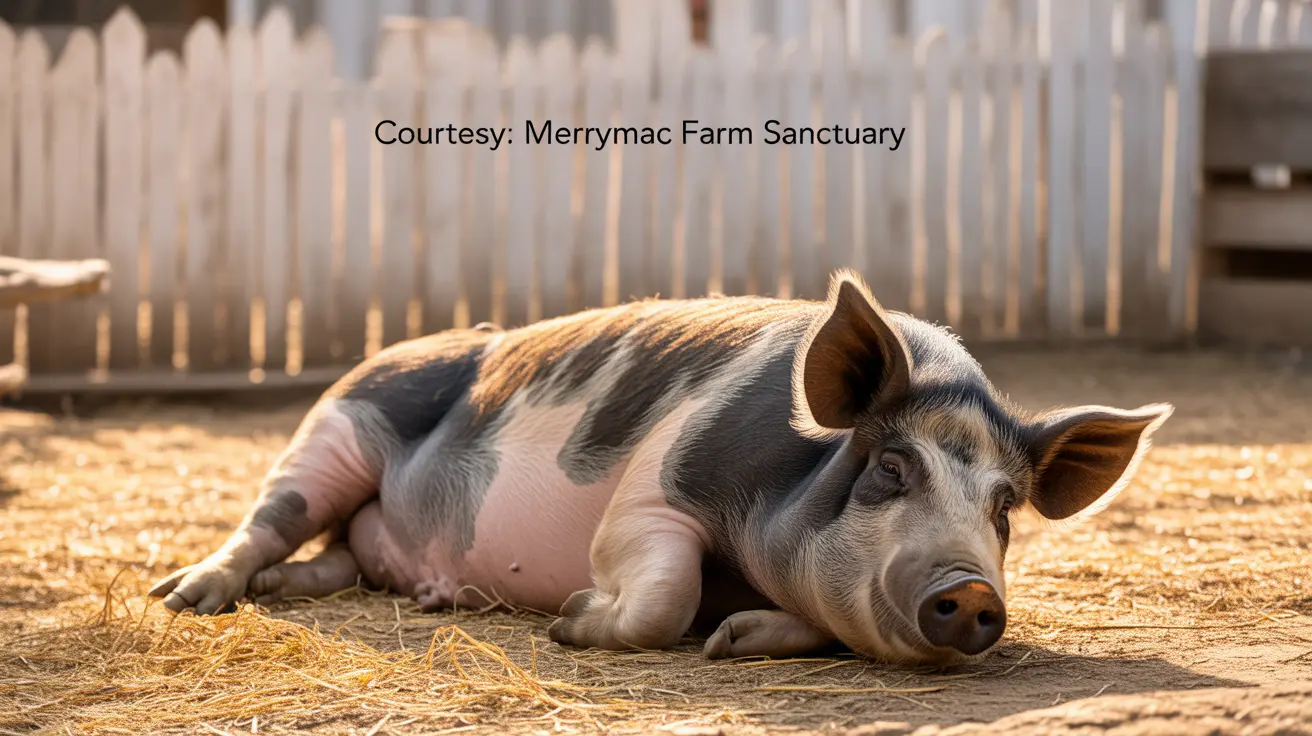A Vermont woman facing animal abuse allegations has been ordered to surrender two of her pigs to state authorities, highlighting the enforcement of Vermont animal cruelty laws in the state's ongoing efforts to protect animal welfare. This case demonstrates how legal proceedings work when animal neglect or abuse is suspected, providing important insights for pet owners about their legal responsibilities and the consequences of failing to meet proper care standards.
The incident underscores Vermont's commitment to enforcing animal protection measures and serves as a reminder to all pet owners about the serious legal implications of animal mistreatment. Understanding these laws and their enforcement helps pet parents recognize their obligations and the potential consequences of inadequate animal care.
Understanding Vermont Animal Protection Laws
Vermont has comprehensive legislation designed to protect animals from cruelty, neglect, and abuse. The state's animal welfare framework includes specific provisions for investigating suspected cases, removing animals from dangerous situations, and prosecuting offenders. These laws empower humane officers and law enforcement to take swift action when animals are at risk.
Pet owners should be aware that Vermont law requires adequate food, water, shelter, and veterinary care for all animals in their custody. Failure to provide these basic necessities can result in criminal charges and the removal of animals from the owner's care.
The Role of Humane Officer Animal Seizure Vermont Procedures
When reports of animal neglect Vermont authorities receive indicate potential abuse or neglect, trained officials follow established protocols to investigate and, if necessary, remove animals from harmful situations. The process typically involves:
Investigation Process
Humane officers assess the living conditions, health status of the animals, and overall care being provided. They document evidence and determine whether immediate intervention is necessary to protect the animals' welfare.
Legal Authority for Removal
Under Vermont's animal protection laws, authorities have the legal power to seize animals when there's evidence of abuse, neglect, or inadequate care. This action prioritizes the animals' immediate safety and well-being.
Penalties for Animal Abuse Vermont: Legal Consequences
The penalties for animal abuse Vermont imposes can be severe, depending on the nature and extent of the mistreatment. Consequences may include:
- Criminal charges ranging from misdemeanors to felonies
- Substantial fines
- Potential imprisonment
- Permanently prohibition from owning animals
The severity of penalties typically corresponds to the level of harm inflicted on the animals and whether the abuse was intentional or due to neglect.
Animal Forfeiture Procedures Vermont: What Pet Owners Should Know
When animals are seized due to suspected abuse or neglect, owners face a legal process that may result in permanent loss of their pets. The surrendering abused animals Vermont process involves court proceedings where evidence is presented, and decisions are made about the animals' future placement.
Pet owners in these situations have legal rights, including the ability to contest the seizure and work toward reunification with their animals if they can demonstrate their ability to provide proper care. However, cases involving severe neglect or abuse often result in permanent forfeiture.
Vermont Pet Owner Legal Responsibilities
All pet owners in Vermont have specific legal obligations that include providing adequate nutrition, clean water, appropriate shelter, necessary veterinary care, and humane treatment. Additionally, owners must ensure their animals are not subjected to cruel conditions or treatment that causes unnecessary suffering.
Responsible pet ownership also involves understanding species-specific needs. For example, pig owners must provide appropriate housing, diet, and environmental enrichment suitable for these intelligent animals' physical and psychological well-being.
How to Report Animal Neglect Vermont
Community members who suspect animal abuse or neglect should contact local humane organizations, animal control officers, or law enforcement agencies. Prompt reporting can prevent further suffering and ensure animals receive necessary care and protection.
When making a report, provide as much detailed information as possible, including the location, description of observed conditions, and any photographic evidence if safely obtainable.
Frequently Asked Questions
What constitutes animal abuse under Vermont law?
Vermont law defines animal abuse as any act that causes unnecessary pain, suffering, or death to an animal, including inadequate food, water, shelter, or veterinary care. Both intentional cruelty and neglectful care can result in criminal charges.
Can pet owners get their animals back after seizure?
Recovery depends on the circumstances of the case and the owner's ability to demonstrate they can provide proper care. Courts consider the severity of the situation, the owner's willingness to address deficiencies, and the animals' best interests when making these decisions.
Who enforces animal cruelty laws in Vermont?
Vermont's animal cruelty laws are enforced by humane officers, local law enforcement, and animal control officers who have the authority to investigate reports, seize animals when necessary, and pursue criminal charges against violators.
Conclusion
This Vermont case serves as an important reminder that animal welfare laws exist to protect vulnerable creatures from harm and suffering. Pet owners must understand their legal responsibilities and the serious consequences of failing to provide adequate care. By staying informed about Vermont animal cruelty laws and maintaining high standards of animal care, pet parents can ensure their animals' well-being while avoiding legal complications.
The enforcement of these laws demonstrates Vermont's commitment to animal protection and serves as a model for responsible pet ownership throughout the community.






